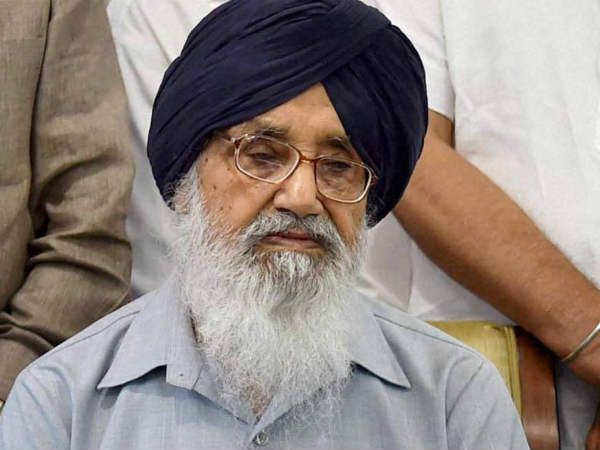Chandigarh: Punjab government today approved the criteria for grant of financial assistance and facilities to Sangharshi Yodhas who participated in anti-Emergency protests and Punjabi Suba movement to safeguard the interest of the state.
The decision was taken by the Council of Ministers during its meeting chaired by Chief Minister Parkash Singh Badal here.
A spokesperson of the Chief Minister s Office said financial assistance of Rs 1000 per month would be given to the participants who had undergone imprisonment for up to three months.
The Sangharshi Yodhas who were under imprisonment for three months to six months would be given a financial assistance of Rs 1500 per month and Rs 2000 per month for those who were imprisoned for more than six months.
They would be required to submit the jail certificate or two co-prisoners certificates for the purpose of proof.
The panchayat in rural areas and municipal committee in urban areas can also give in writing after unanimous approval, the time spent by Sangharshi Yodha in prison due to participation in Morchas.
Apart from this, those Sangharshi Yodha who were beneficiaries in the past their pensions have also been restored.
Keeping in view the administrative exigencies, the Cabinet also gave ex-post facto approval to revive and fill up 25 posts of Punjab Civil Service (Executive Branch) for direct recruitment as well as of various registers.
The Cabinet also gave ex-post facto approval to the appointment of Manjinder Singh Sirsa as Advisor to Deputy Chief Minister in the rank of State Minister.
It also gave approval for the creation of posts of six Private Secretaries, six Personal Assistants, six Clerks, six Telephone Attendants, six peons and six cooks for the office of the new Chief Parliamentary Secretaries, .
The Cabinet also gave green signal to amend The Right to Service Act-2011 by promulgating an Ordinance thereby substituting the name First Appellate Authority and Second Appellate Authority with Grievance Redressal Authority and Appellate Authority, respectively in the principal Act and empowering them to take suo-moto notice of failure to deliver services and to pass order.
(Sourced from agencies, Feature image courtesy:oneindia.com)

























